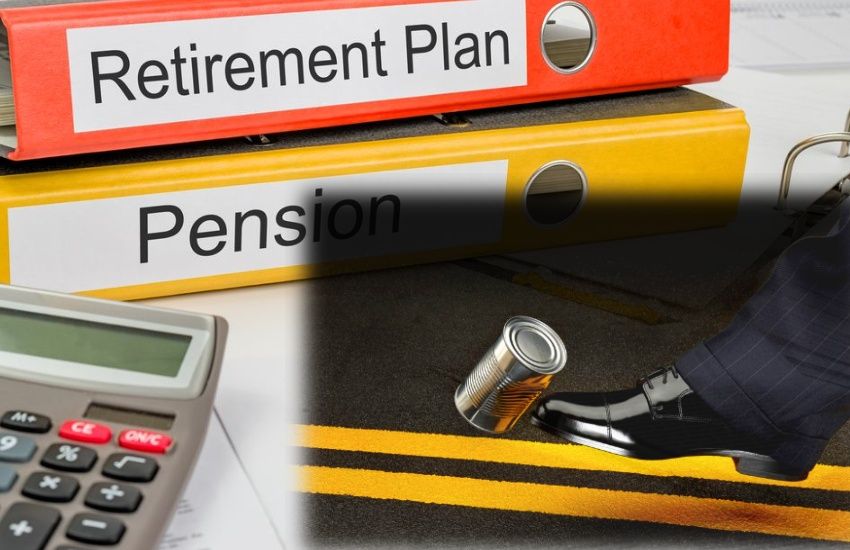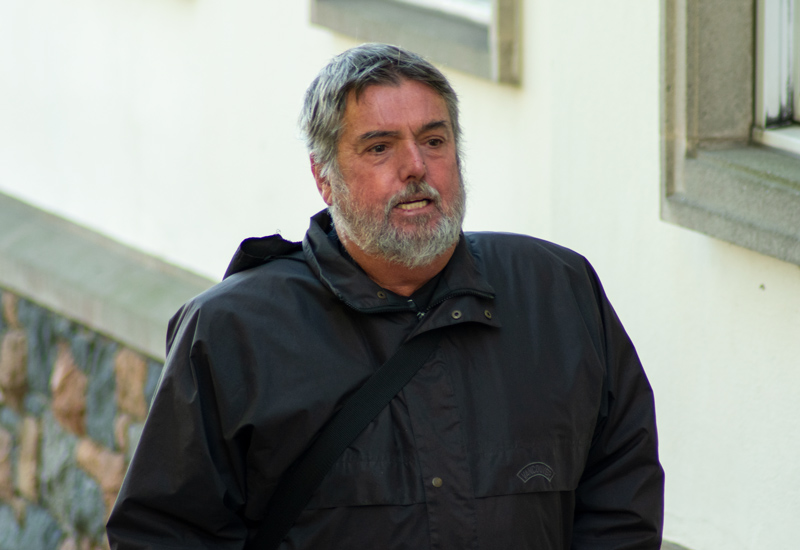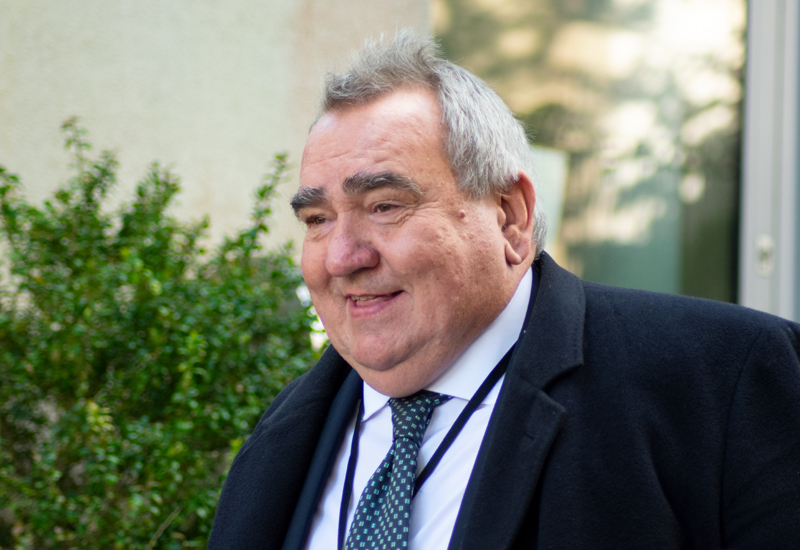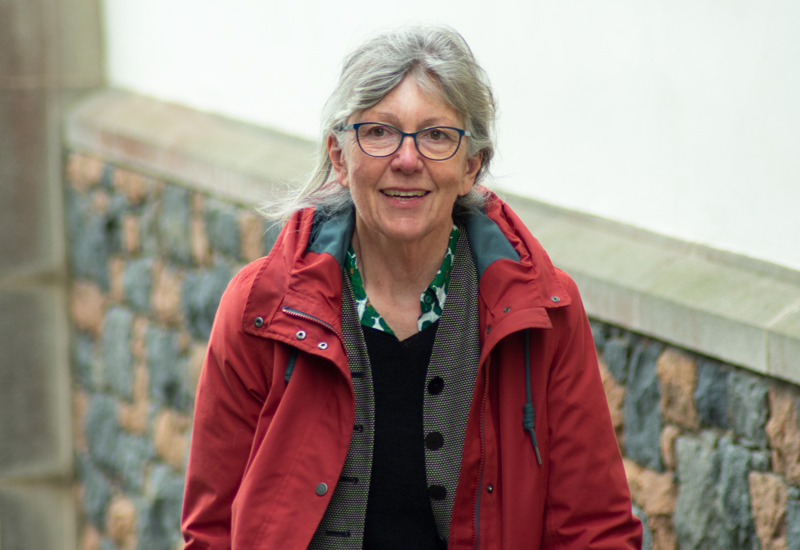


The States' Assembly voted this afternoon to delay making a decision on whether to introduce a secondary pension scheme for the thousands of islanders who are currently without a workplace pension.
The proposals from the Committee for Employment & Social Security will now be revisited in November after the States voted by 20 votes to 17 in favour of a sursis [delaying motion] laid by Deputies Carl Meerveld and Andrea Dudley-Owen.
The President of the Committee for Employment & Social Security, Deputy Peter Roffey, said the sursis, which was presented by Deputy Meerveld nearly three hours into the States' debate on secondary pensions, was unnecessarily "kicking the can down the road".
"We have a huge welfare ticking timebomb. And the longer we leave it before trying to defuse it, the bigger the eventual explosion will be," said Deputy Roffey.
"Already we have left it too long - far too long. Already we are way behind most of the western world. To hesitate further would not only be social madness - it would be financial madness.
"What is this sursis? How would I characterise it? Well, at the start of August, I'm going to be in Birmingham watching the Commonwealth Games. How I wish there was a gold medal awarded for the sport of can kicking. This island - Guernsey - would have to look no further than the members of this Assembly to send someone who was an absolute nailed on certainty to bring back gold. If there's one thing we do really well it is can kicking."

Pictured: As President of the Committee for Employment & Social Security, Deputy Peter Roffey presented the secondary pension proposals to the States, and will now need to do so again at the end of November.
Deputy Meerveld said he was laying his sursis partly to allow the States to reconsider secondary pensions around the time when another States' debate is expected on future tax policy, including on the Policy & Resources Committee's proposal for a new goods and services tax.
Deputy Meerveld said that support for his sursis meant that "a decision has been made that this is an important issue which impacts the quality of life and the incomes and disposable incomes of people in Guernsey and needs to be combined with the tax debate in a reasonable time period".
"That will be action and that will be good governance and that will be, in my opinion, doing the right thing," said Deputy Meerveld.

Pictured: The sursis was proposed by Deputy Carl Meerveld and seconded by Deputy Andrea Dudley-Owen.
The seconder of the sursis, Deputy Dudley-Owen, said that unprecedented economic pressures and the rising costs of living made this the wrong time for the States to vote on whether to go ahead with a secondary pension scheme.
"Both sides of this debate have valid views," said Deputy Dudley-Owen. "I understand the need for some to push on. Personally, I can’t without a fuller view of where we’re headed. If, like me, you need the strategic context and the big picture view, please support the sursis."
Deputy Lyndon Trott agreed that economic uncertainty justified delaying a decision by six months.
"I very much hope that some of the conditions I’ve been talking about and others far more qualified than me have been espousing are not accurate and that we see inflation coming down and GDP growth forecasts recovering," said Deputy Trott.
"But my job is to hope for the best and plan for the worst. I think that is really where I rest today in wanting to buy myself a bit of breathing space and that is why I shall support the sursis.
"What we didn’t know [previously] was that...the Governor of the Bank of England was going to tell the Treasury Select Committee that we believe that inflation in the second half of this year in the sterling zone will be 10%. This really is an extraordinary figure."

Pictured: Deputy Mark Helyar said he could see no harm in delaying a decision for another few months.
The Policy & Resources Committee's Treasury Lead, Deputy Mark Helyar, also asked the States to back Deputy Meerveld's sursis.
"I see no harm in trying to put ourselves in the best possible position for our economy for the next nine months or six months because the decisions we may need to make in the interim may be very difficult," said Deputy Helyar.
"We don’t know, for example, how our investments are going to grow over that period. There are many, many factors in terms of things we can’t control in the macro environment, including the war in Ukraine, which will have an impact on not only our economic fortunes but also other decisions we need to make in terms of tax.
"I see no harm in a short delay in order to really think about what we’re doing from a tax perspective."

Pictured: Deputy Simon Vermeulen was concerned about what he said was the fragile state of parts of Guernsey's economy.
Deputy Helyar's Guernsey Party colleague, Deputy Simon Vermeulen, said that making a decision on secondary pensions now required the States to make a judgement at a time of economic uncertainty. He felt that delaying a decision would help the States to "look at things in the round".
"The economy in Guernsey is struggling right now. There’s not a person in Guernsey who hasn’t felt the increases in their shopping basket and who hasn’t felt it at the petrol pump," said Deputy Vermeulen.
"My ear is very, very firmly to the ground. I speak a lot with small businesses and large businesses, too, and they are talking right now that if they don’t see anything positive from the States that they will not be investing on island.
"That will bring on exactly what Deputy Trott was talking about earlier – stagflation.
"Deputy Ferbrache suggested that we look at things in the round and that is a step change and it is a welcome step change. It’s a good idea."
But several opponents of the sursis echoed Deputy Roffey's claim that it was an attempt to "kick the can down the road".

Pictured: Deputy Gavin St Pier said that supporting the sursis was "a pathetic decision" by an Assembly which he thinks is increasingly marked by "inaction this day".
Deputy Gavin St Pier pointed out that the Policy & Resources Committee in the current States' term had consistently supported the introduction of a secondary pension scheme and that the emergence of monkeypox was the only new information since the Committee's most recent public statements of support for the scheme.
Deputy St Pier said the sursis was the "ultimate short-termism – six months' delay" whereas "pensions can have a life of 40 to 60 or maybe 70 years – if they start contributing at 18 and live until they are 88 – the ultimate long-term commitment".
"If anyone believes that, if this sursis succeeds, there will only be a delay of six months is either very naïve or living in cloud cuckoo land – they do not have their feet grounded in reality," he said.
"We live in an age of three-word hollow slogans: no new taxes; just do it; every little helps; get Brexit done; build back better; and, most famous of all, action this day. This States bought into that agenda on its first day. It was always going to a slogan that hopelessly mismanaged expectations – and so it has proved.
"The Assembly deferred a decision on the harbours. The Policy & Resources Committee has been unable to bring any tax proposals to this Assembly in accordance with its own shifting timetable. And now this. This Assembly has learned that inaction this day, or action next term, are far less controversial and far more attractive than action this day.
"Deputy [Bob] Murray said there is no leadership here. He is right. If this States approve this sursis, it will be a pathetic abdication of its responsibility to long-term planning for the community. And it will be a pathetic abdication of its responsibility to the 60% of the working-age population who have no pension provision beyond the States' pension.
"It will be a pathetic decision fit for purpose for an Assembly committed to action next term."

Pictured: Deputy Yvonne Burford argued that delaying the decision would not help and that deputies should either vote for the scheme if they agreed with it or against the scheme if they opposed it.
Deputy Yvonne Burford said the Assembly should be increasingly known by the slogan "inaction this day".
"The harbours, secondary pensions, discrimination legislation. Now this sursis represents the worst form of governing," she said.
"I doubt that the tax review – something else this States of inaction have deferred – will be decided by November in order to solve this secondary pension issue then. And I question again the whole premise of not doing anything until we can do everything because, as everyone knows, it leads to doing nothing.
"I am as mindful of anyone that there are going to be people who won’t feel they can afford to stay in a pension scheme and will therefore opt out. I accept that some employees in our community are not going to be able to afford pension contributions even at the low rate and the incremental pace specified in the policy letter. And I accept that inflationary pressures will exacerbate that.
"I hope from what we know about the intended effects of the tax review on lower income households that it will make their situation better, not worse, whatever types of tax are introduced. But there is no case for waiting for the tax review before considering giving people the opportunity to save for their retirement."

The Committee had hoped to have the secondary pension scheme up and running next year.
Figures presented to the States previously suggested that in the first year of the scheme employees and employers would both pay 1% of the employees' salary into his or her new pension pot.
Contribution rates would then increase over the following seven years. If the scheme started in 2023, contribution rates by the year 2030 would be 6.5% for the employee and 3.5% for the employer.
This means that in the long term an employee with a salary of £50,000 would pay £3,250 per year into his or her secondary pension pot and the employer would pay £1,750 per year - a total of £5,000 annually.
Employers contributing to private occupational pension schemes already would not be compelled to join the States' secondary pension scheme.
For (20): Deputies Aldwell, De Lisle, Dudley-Owen, Dyke, Ferbrache, Haskins, Helyar, Inder, Leadbeater, Mahoney, McKenna, Meerveld, Moakes, Murray, Prow, Taylor, Trott, Vermeulen and Alderney Representatives Roberts and Snowdon.
Against (17): Deputies Blin, Brouard, Burford, Bury, Cameron, de Sausmarez, Fairclough, Falla, Gabriel, Gollop, Kazantseva-Miller, Matthews, Parkinson, Queripel, Roffey, Soulsby, St Pier.
EYE ON POLITICS: This week in the States' Assembly
ESS boss confident of getting final approval for new pension scheme
Comments
Comments on this story express the views of the commentator only, not Bailiwick Publishing. We are unable to guarantee the accuracy of any of those comments.